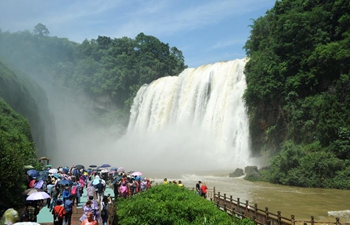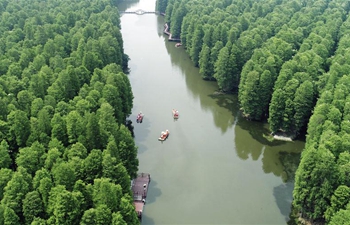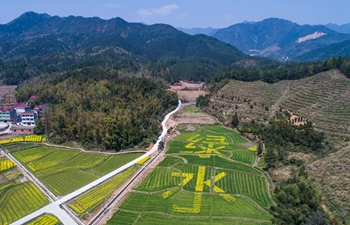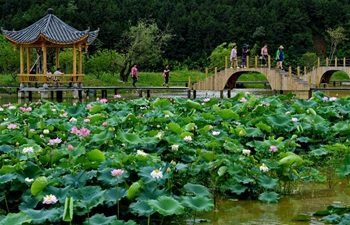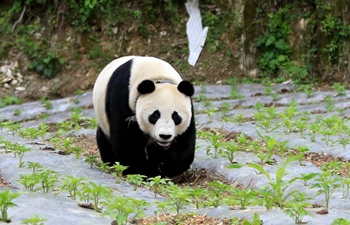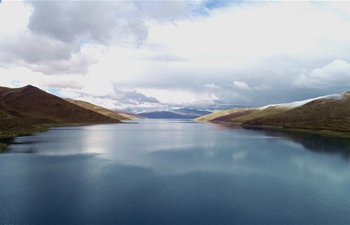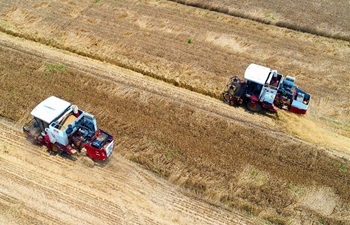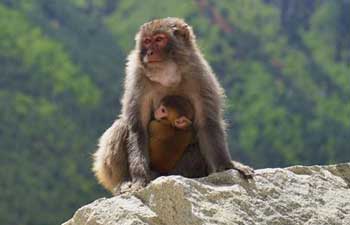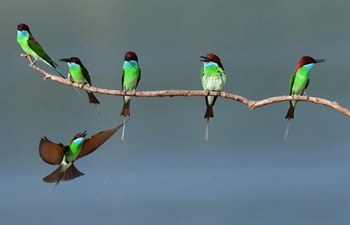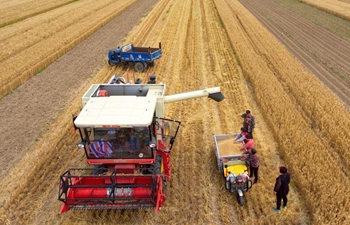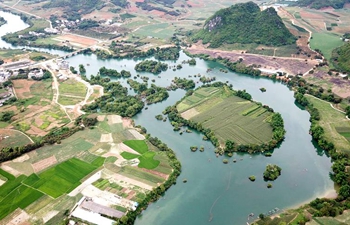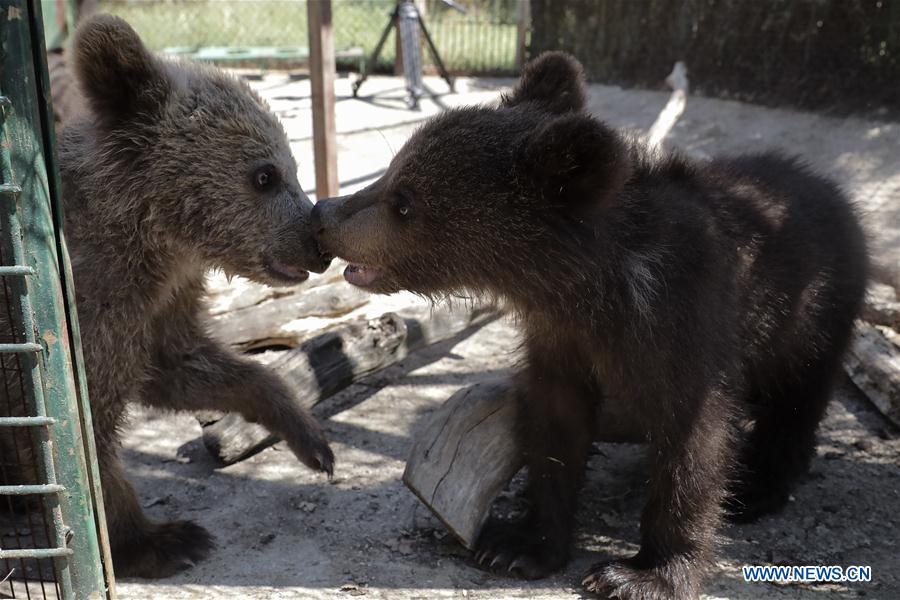
Photo taken on June 4, 2018, shows two orphan baby bears playing inside Arcturos wild life sanctuary in Florina, Greece. The wildlife sanctuary of Arcturos implements cross-border projects to protect captive bears and wolves and raise public awareness. (Xinhua/Dimitris Tosidis)
by Alexia Vlachou
ATHENS, June 5 (Xinhua) -- Five orphan bear cubs will have a second chance to return to the wild after following a unique rehabilitation project in the wildlife sanctuary of Arcturos near the Greek village Nymfaio on Mount Vitsi.
After a fruitless search for their mothers, five-month-old bear cubs Luigi and Sofia from Greece have been given shelter in the sanctuary in the last month. Three more cubs were transferred from Bulgaria last week.
"The rehabilitation project for bear cubs is pretty new, and crucial, as all these bears would not have a chance to return to the wild. Either they would be euthanized or be kept in zoos and sanctuaries," caretaker Melina Avgerinou at the Arcturos bear sanctuary told Xinhua.
The cubs will live separately from older bears in the shelter for one year. They will be trained in how to survive in the wild. If everything goes well, the cubs will be released into their natural environment.
Bear cubs depend on their mothers for 17 to 29 months. During this time, they are subject to relatively high mortality rates, especially if their mothers are killed.
The experiences of many rehabilitators suggest that the behaviors and skills cubs need to survive in the wild are instinctive and do not need to be taught to them by their mothers.
"After having spent ten months to one year in our facilities separated from other bears, they are educated in how to search for food and how to avoid dangers," said Panos Stefanou, head of communications at Arcturos.
So far, Arcturos has released four cubs, three of which successfully adapted to the wild. The fourth cub, Patrick, reappeared in the sanctuary after being released, so they kept it.
Officials said they prefer to release the cubs during the winter in artificial dens since there is less human activity and they will hibernate. Patrick was the only cub released in the spring.
REHABILITATION PROCESS
Scientists and caretakers follow a specific rehabilitation process.
"First when the bears come, we have as much contact as possible with them. We have to be their mother; we have to feed them, we have to play with them, to spend time with them so they will feel secure. After that, we start reducing the milk meals. They start eating other types of food like fruits and grass, everything that they could eat in the wild. That means that we have to reduce the time we spend with them," Avgerinou said.
The protocol is very strict. The bear cubs will be released when they will have reached a weight of 50 kg and only if certain conditions are met.
"It involves as little human contact with the caretakers as possible. They don't see many people, and they don't get very close and attached to humans. The most important fact for cubs to be released is to show us signs that they know how they can search for food and even more important is to avoid humans," Stefanou explained.
For Avgerinou, who spends time taking care of the little bears, the most difficult part in the rehabilitation process is imposing boundaries.
"It is difficult to know where to stop and the bear does not need us anymore. But it is also the key to the success of the program. If we are closer more time than the necessary, the bears would start depending on humans and it would be very difficult for us to release them later," she said.
The benefit of the rehabilitation project is double, according to Arcturos scientific director Alexandros Karamanlidis. The bear cubs return to the wild and the population of the brown bear in Greece -- once considered among the most endangered mammals in the country -- is reinforced.
DECREASING POPULATION
The brown bear is Europe's largest land mammal. Its population has decreased throughout Europe, including in Greece. In 2010, experts said there were only 200 surviving brown bears in Greece, but their population has appeared to have doubled in recent years.
An estimated 450 bears are living in two independent populations in the country. The largest population lives in the Pindos Mountains, and the other in the Rhodope Mountains.
Saving the brown bear has been one of Arcturos' goals since it was founded in 1992. It is no accident that its name comes from an ancient Greek term that means "the guardian of the bear".
Arcturos not only cares for bears but also for another species affected by human sprawl: the wolf.
Driven by the need to solve the problem of imprisonment, poaching and hunting, the organization implements cross-border projects to protect captive bears and wolves in Greece and raise public awareness.




